Today, we will cover the AMD Computex 2024 keynote in three parts. This first part will focus on the desktop and mobile parts. We will then have a part dedicated to the AMD EPYC announcement and another for the Instinct GPU announcement. There will likely be some embedded bits that further the AMD Embedded Plus announcement but we are not going to get to cover those in this keynote.
This is being done live, so please excuse typos.
AMD Computex 2024 Keynote AMD Ryzen 9000
AMD is following up the AMD Ryzen with a new AM5 CPU, the Zen 5 based AMD Ryzen 9000 series codenamed “Granite Ridge”. AMD said it plans to support AM5 through 2027 and perhaps beyond.
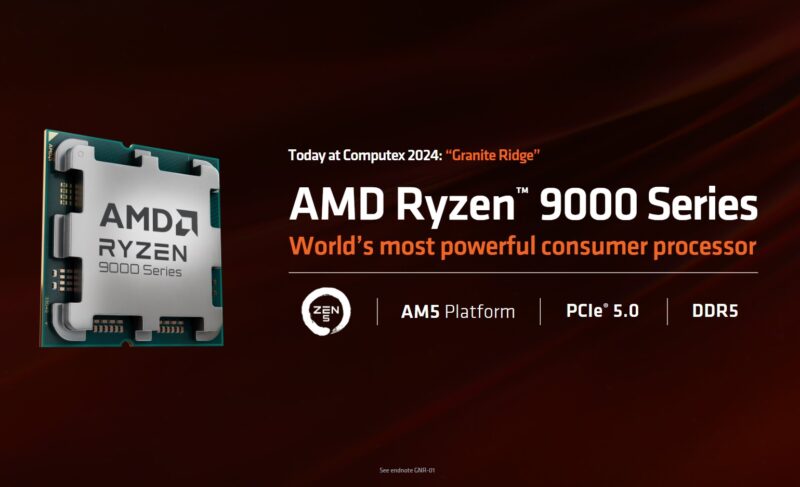
AMD says that Zen 5 will be its next-gen performance CPU core after Zen 4. Zen 4, for reference, also powers CPUs like the AMD EPYC Genoa.
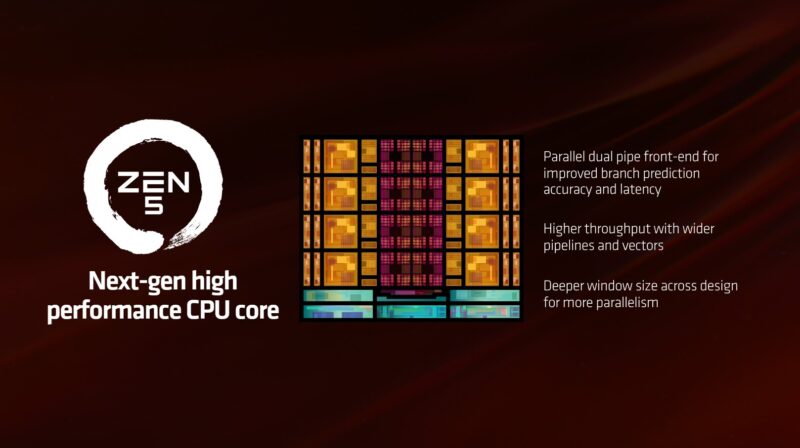
AMD Zen 5 offers “up to 2x” the performance for certain areas of the core.
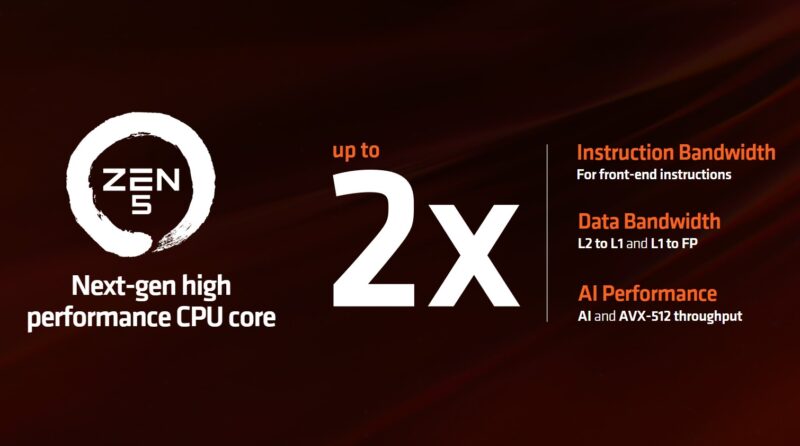
The IPC uplift for Zen 5 is said to be 16%. We should note that the Geekbench 5.4 AESXTS test is the biggest uplift, by far. That is a previous version of a legacy benchmark, so it feels a bit strange that this is included. At the same time, there is a lot of old code out there.
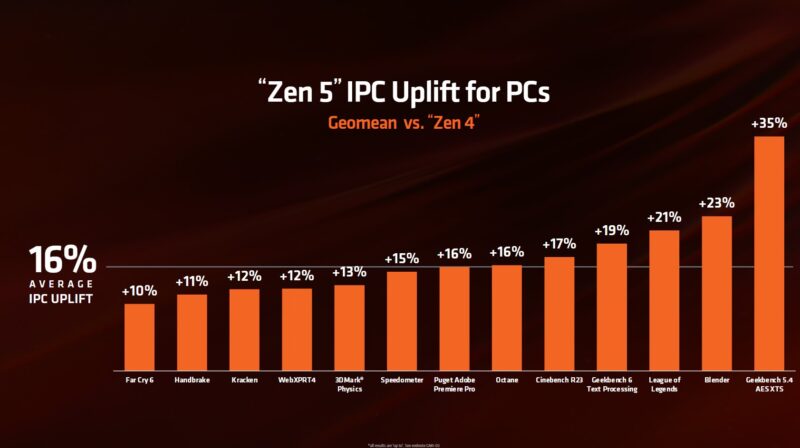
The flagship will be the AMD Ryzen 9 9950X. It will still have a 170W TDP, but will have 16 cores/ 32 threads, 5.7GHz boost clocks (crazy) and 80MB of L2+L3 cache. This feels like more of an incremental improvement, but we might be wrong. Hopefully we get parts to test when they are released.
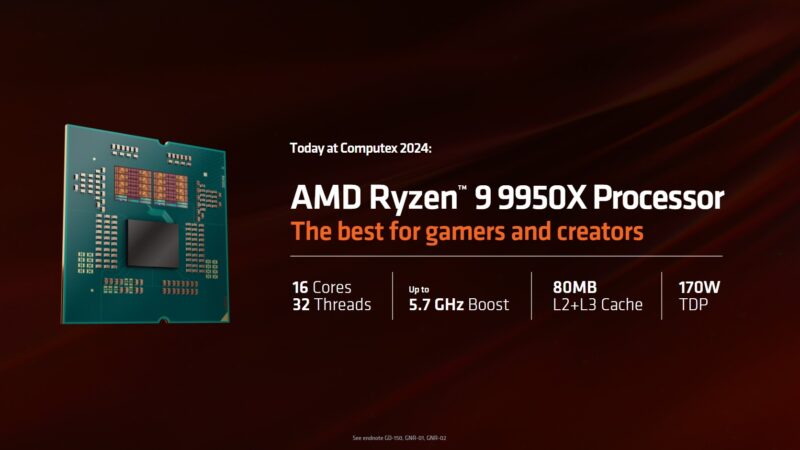
Here it is.
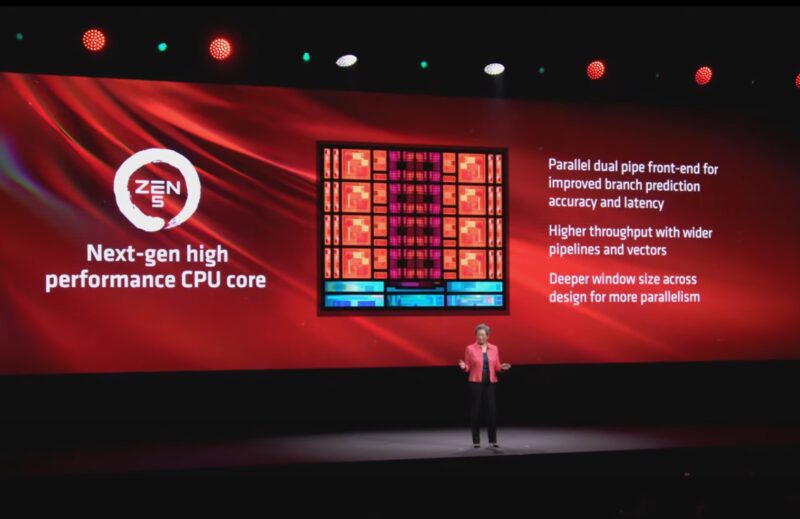
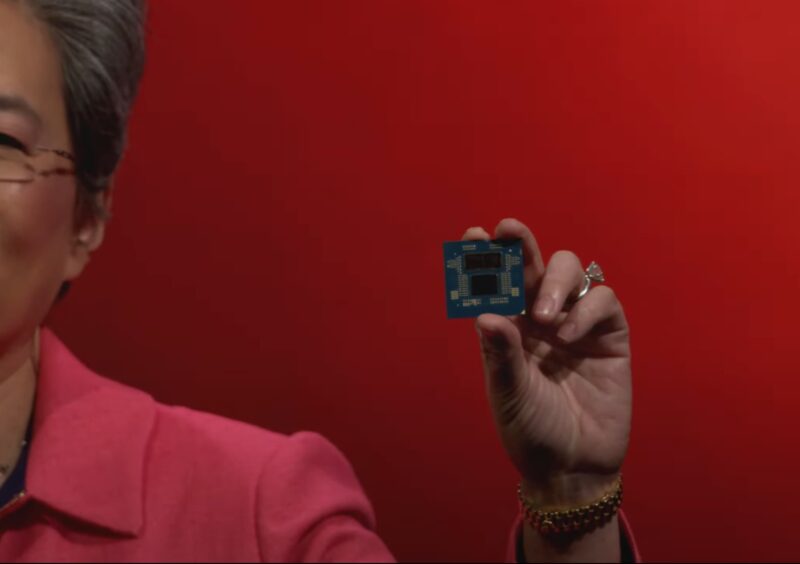
AMD says that it has some big performance uplifts over the Intel Core i9-14900K.
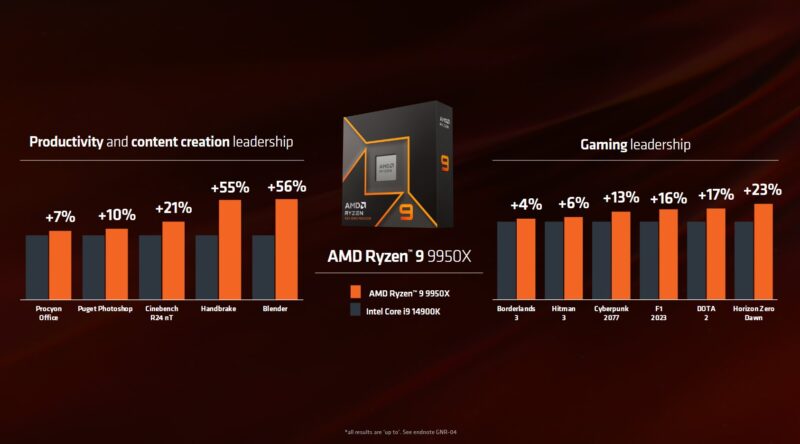
Here are the first four AMD Ryzen 9000 series SKUs. Since we lose 4MB of L2+L3 cache moving from 16 cores to 12 cores, it feels like this is 1MB of L2 cache per core. That would mean 64MB of L3 cache on the Ryzen 9 9950X and 9900X.
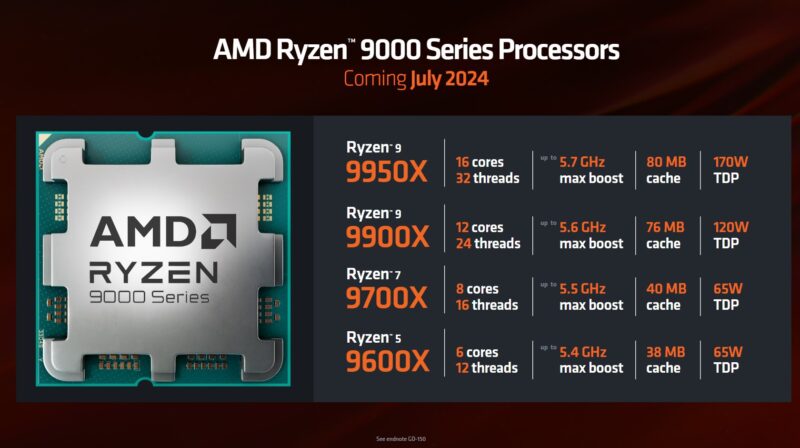
We will get pricing closer to launch in July 2024. Next, we have the AMD Ryzen AI
AMD Computex 2024 Keynote 3rd Gen AMD Ryzen AI
Of course, the AI PC is the big focus of Computex 2024. For that, and for the notebook market, we have the 3rd Gen AMD Ryzen AI.
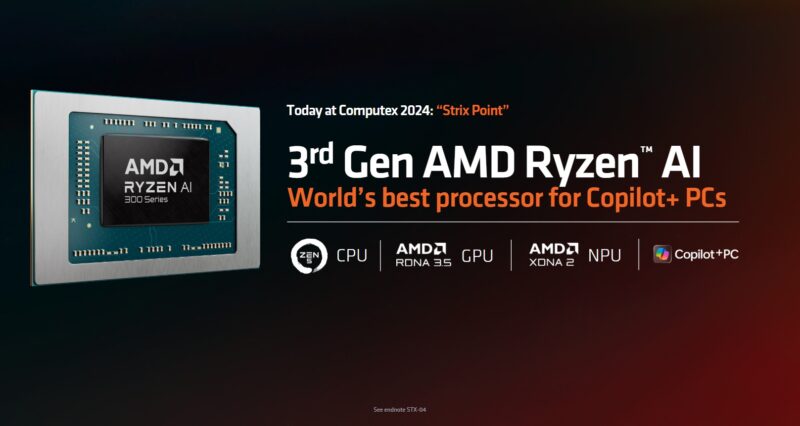
This uses the AMD Zen 5 core, with an updated RDNA 3.5 GPU IP, and a XDNA 2 NPU.
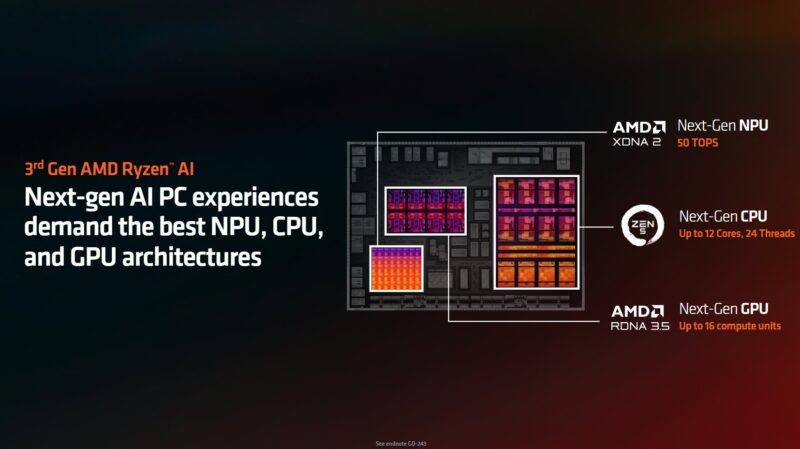
Here are the highlights of the Copilot+ PC part.
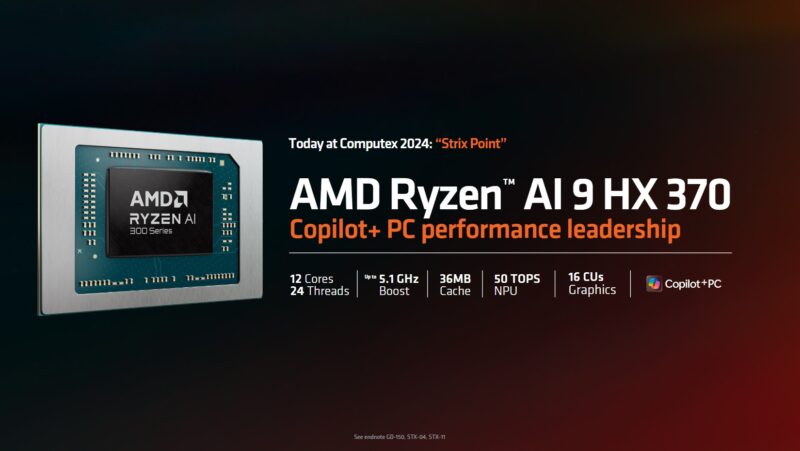
Here is the part:
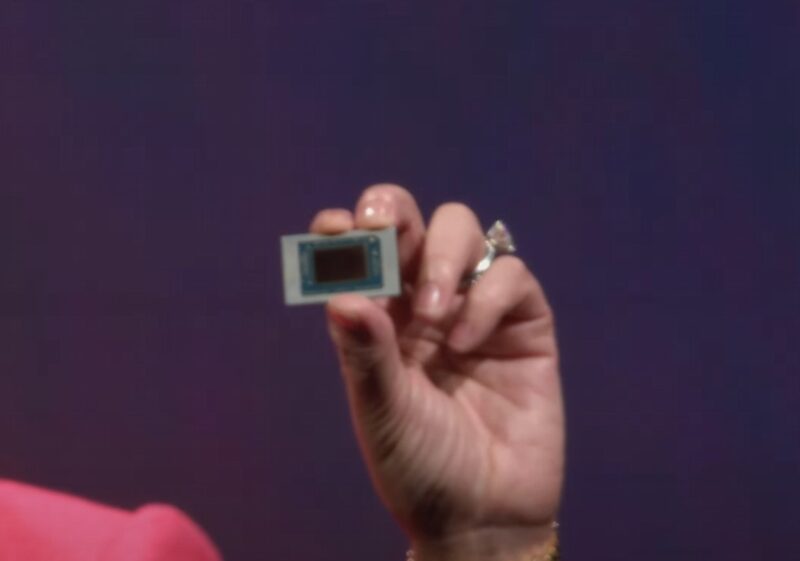
Since the NPU is becoming a huge capability, the new XDNA 2 part is much faster than the current AMD Ryzen 8040 series.
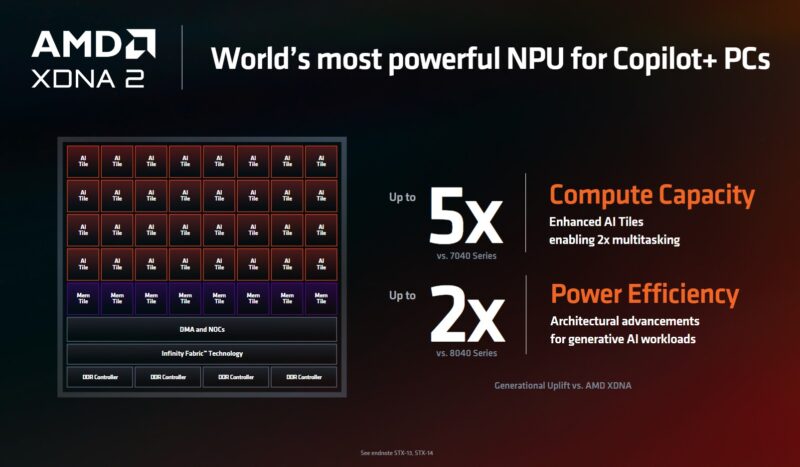
AMD says it has more 8-bit TOPS than Qualcomm, Apple, and what it expects Intel to announce with Lunar Lake.
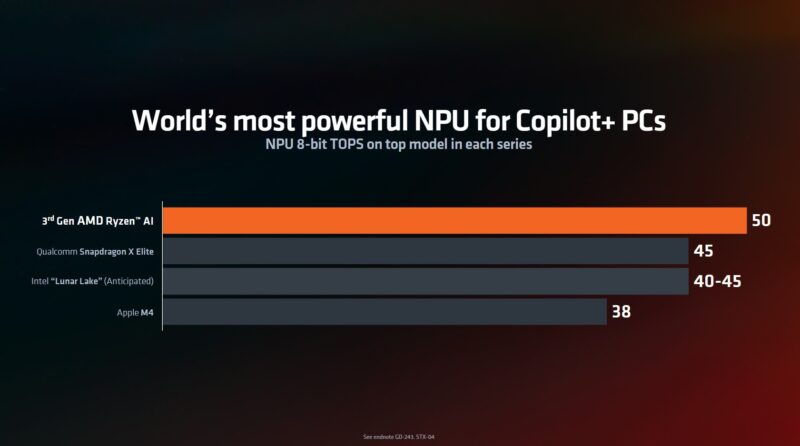
AMD is now talking data types with XDNA 2.
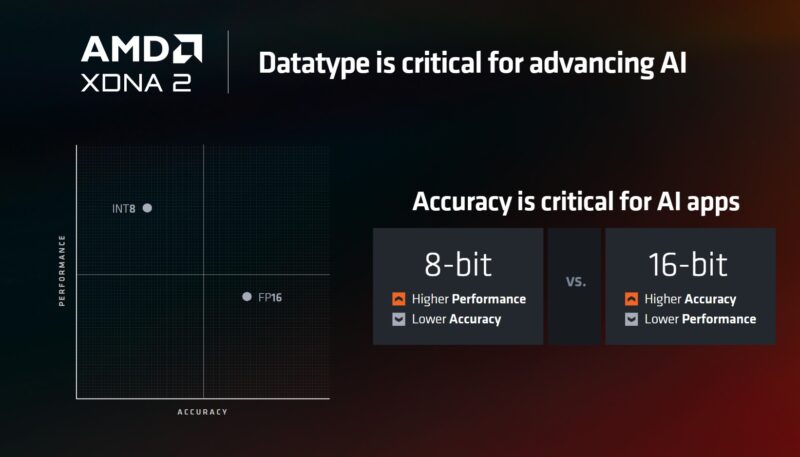
AMD plans to support the Block Floating Point 16 or Block FP16 data type for more performance and good accuracy.
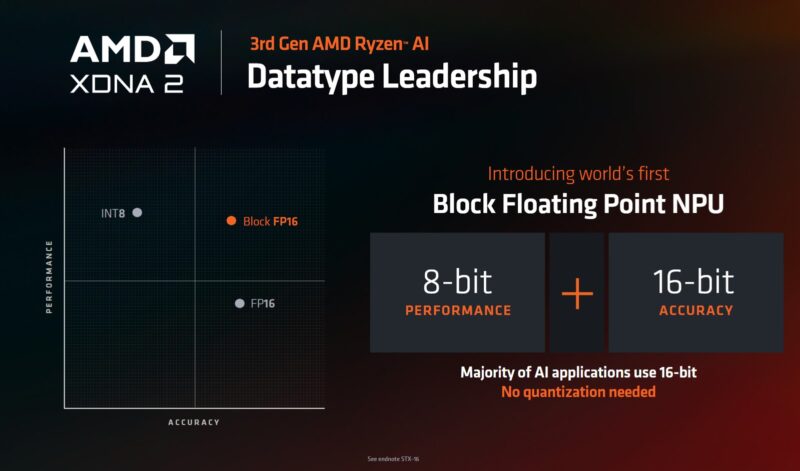
AMD says that Block FP16 will have more of the accuracy of 16-bit data but with the performance of 8-bit data.
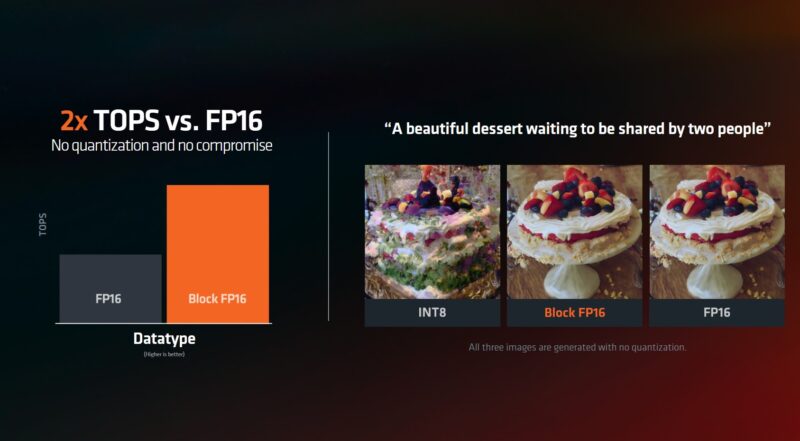
The demo shows a stable diffusion XL with the same prompt output between INT8 and FP16 and Block FP16.
Here is AMD’s comparison to other Copilot+ PCs.
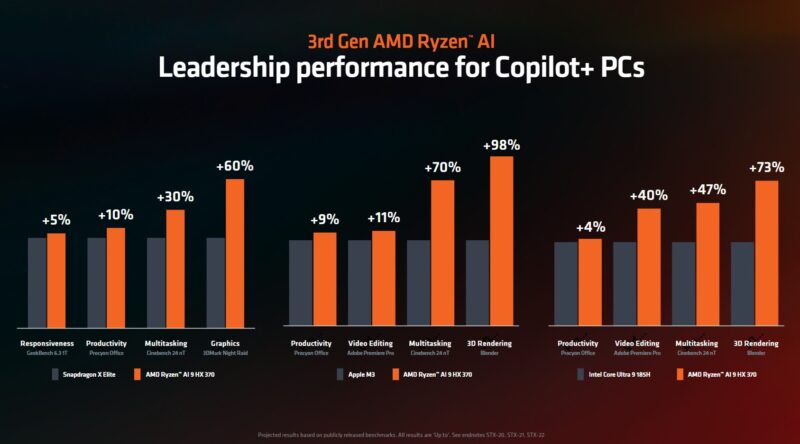
Notably, here, AMD is saying that Qualcomm is doing very well with its Snapdragon X Elite.
Final Words
There is a lot here, but Intel also has its keynote coming tomorrow, and there is a TON in that one. One of the coolest things here is that the Copilot+ PCs are a huge inflection point. AMD now has three competitors in its performance charts. A few years ago it was AMD versus Intel. Now the world is more varied.
Next, let us get to the AMD EPYC announcements!

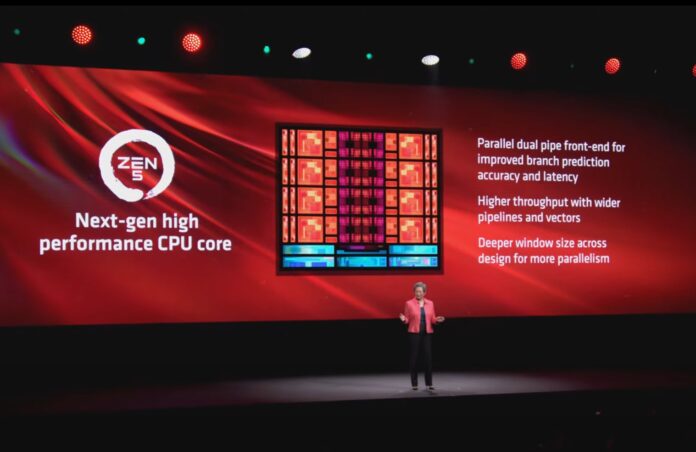
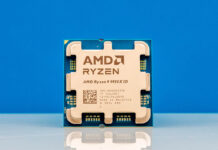

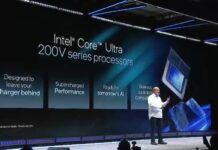
But where is the NPU on the desktop parts? If it’s really the era of copilot PCs, shouldn’t that era include desktops?
There is also PRO versions of the Ryzen AI coming, from AMD’s site:
Live Webinar
The Future Now: Unveiling the Latest AMD Business PC Processors
Thursday, May 16, 2024
10 AM PT | 12 PM CT | 1 PM ET
Is it known which new CPUs/NPUs/chipsets will (or will not) support ECC RAM?